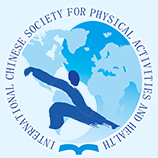Document Type
Abstract
Keywords
randomized controlled trials, yoga, yoga intervention
Publication Date
2-2023
Abstract
The mental health of college students is an increasingly serious public health problem. Effective and healthy interventions are needed. More and more research has been conducted on yoga, but there are few randomized controlled trials (RTC) on effects of yoga intervention on students' mental health. Therefore, this study examined effects of quality of yoga intervention on mental health in college students. We used PubMed (Medline), Cochrane, Web of Science, CNKI, VIP Chinese Science and Technology Journal Database (VIP) and WanFang Database to search randomized controlled trials (RCTs) of yoga intervention in college students' mental health. After the screening, 17 articles met the requirements and were included along with the utilization of the Cochrane bias risk assessment tool Rob2.0 to evaluate the quality of the included articles. Of 17 articles reviewed, three articles were rated as "low risk of bias", five articles were rated as "possibly at risk of bias", and nine articles were rated as "high risk of bias". The 17 studies predominantly consist of low methodological quality and lack multi-centered, large-sample collaborative research. Almost all researchers mentioned the use of "randomization" in their articles, but they did not indicate which randomization method was used. There was no description of allocation concealment, blinding, case shedding, case follow-up etc., and it was impossible to judge whether the trial design was correct, or whether random grouping was, indeed, undertaken. This study found that most of the so-called "randomized controlled trials" are doubtful, which virtually reduces the strength and credibility of this study. Therefore, improving the research quality of yoga intervention and standardizing the writing of scientific research articles are the problems need to be solved in the current field of sports psychology research in China. Current evidence shows that yoga exercise can relax the body and mind, thereby improving the level of mental health, and complete yoga (exercise, breathing, meditation) significantly relieves the symptoms of depression. Performing yoga postures and exercises promotes blood circulation, effectively improves sleep, and regulates breathing to stabilize autonomic nerves, relieve stress, and eliminate mental tension. In the future, yoga practice can be used as a non-medical intervention to treat mental illness. The quality of the current randomized controlled trials of yoga intervention in the mental health of college students is generally low. Randomized controlled trials with reasonable methodological design, strict implementation, and sufficient follow-up time are still needed. It is recommended that researchers should strengthen the systematic study of clinical trial methodology and strictly refer to the Cochrane manual list for clinical research reports in order to improve the quality of literature reports.
DOI
https://doi.org/10.18122/ijpah.020106.boisestate
Recommended Citation
Yumei, Jiang; Yingya, Pu; Bo, Shen; and Chen, Ding
(2023)
"The Effects of Yoga on College Students' Mental Health: A Systematic Review,"
International Journal of Physical Activity and Health: Vol. 2:
Iss.
1, Article 6.
DOI: https://doi.org/10.18122/ijpah.020106.boisestate
Available at:
https://scholarworks.boisestate.edu/ijpah/vol2/iss1/6
Included in
Exercise Science Commons, Health and Physical Education Commons, Public Health Commons, Sports Studies Commons


